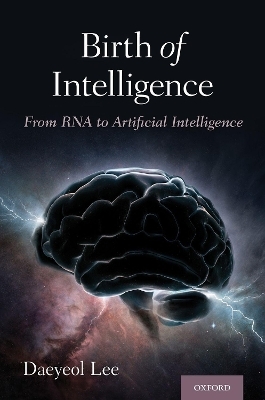
Birth of Intelligence
Oxford University Press Inc (Verlag)
978-0-19-090832-4 (ISBN)
Daeyeol Lee received his undergraduate degree in economics from Seoul National University in South Korea, and his doctoral degree in neuroscience from the University of Illinois at Urbana-Champaign in the United States. He has held faculty appointments at Wake Forest University, University of Rochester, and Yale University, before joining the Zanvyl Krieger Mind/Brain Institute at the Johns Hopkins University as a Bloomberg Distinguished Professor in 2019. His research focuses on the brain mechanisms of decision making and high-level cognition.
Preface
Chapter 1. Levels of Intelligence
What is Intelligence?
Intelligence without neurons: bacteria to plants
How does a nervous system work?
Reflexes: simple behavior
Limitations of reflexes
Connectome
Multiple controllers for muscles
Eye movements: a case study
Many behaviors are social
Chapter 2. Brain and Decision Making
Utility theory
Time and uncertainty
Indecision: Buridan's ass
Limitations of the utility theory
Happiness
Utility theory and the brain
Meaning of action potentials
Evolution of utilities
Chapter 3. Artificial Intelligence
Brain versus computer
Will computers outperform human brains
Synapse vs. transistor
Hardware vs. software
AI on Mars
Is Sojourner still alive?
Autonomous AI
AI and utilities
Robot society and swarm intelligence
Chapter 4. Self-replicating machine
Self-replicating machines
Natural history of self-replicating machines
Multi-talented proteins
Multicellular organisms
Brain evolution
Evolution and Development
Chapter 5. Brain and Genes
Division of labor and delegation
Principal-agent relationship
Brain's incentive
Chapter 6. Why learning?
Diversity of learning
Classical conditioning: a salivating dog
Law of effect and instrumental conditioning: a curious cat
Instrumental meets classical
Instrumental and classical clash
Knowledge: latent learning and place learning
Chapter 7. Brain for Learning
Neurons and learning
Search for the engram
Hippocampus and basal ganglia
Reinforcement learning theory
Pleasure chemical: dopamine
Reinforcement learning and knowledge
Regret and orbitofrontal cortex
Regret neurons
Chapter 8. Social Intelligence and Altruism
Game theory
Death of game theory?
Iterative prisoner's dilemma
Pavlov strategy
Cooperating society
Dark side of altruism
Predicting the behaviors of others
Recursive mind
Social brain
Default cognition: anthropomorphization
Chapter 9. Intelligence and Self
Paradox of self-knowledge
Meta-cognition and meta-selection
Cost of intelligence
Chapter 10. Conclusion: Questions for Artificial Intelligence
| Erscheinungsdatum | 07.04.2020 |
|---|---|
| Verlagsort | New York |
| Sprache | englisch |
| Maße | 236 x 157 mm |
| Gewicht | 476 g |
| Themenwelt | Geisteswissenschaften ► Psychologie ► Allgemeine Psychologie |
| Geisteswissenschaften ► Psychologie ► Verhaltenstherapie | |
| Informatik ► Theorie / Studium ► Künstliche Intelligenz / Robotik | |
| ISBN-10 | 0-19-090832-7 / 0190908327 |
| ISBN-13 | 978-0-19-090832-4 / 9780190908324 |
| Zustand | Neuware |
| Informationen gemäß Produktsicherheitsverordnung (GPSR) | |
| Haben Sie eine Frage zum Produkt? |
aus dem Bereich


